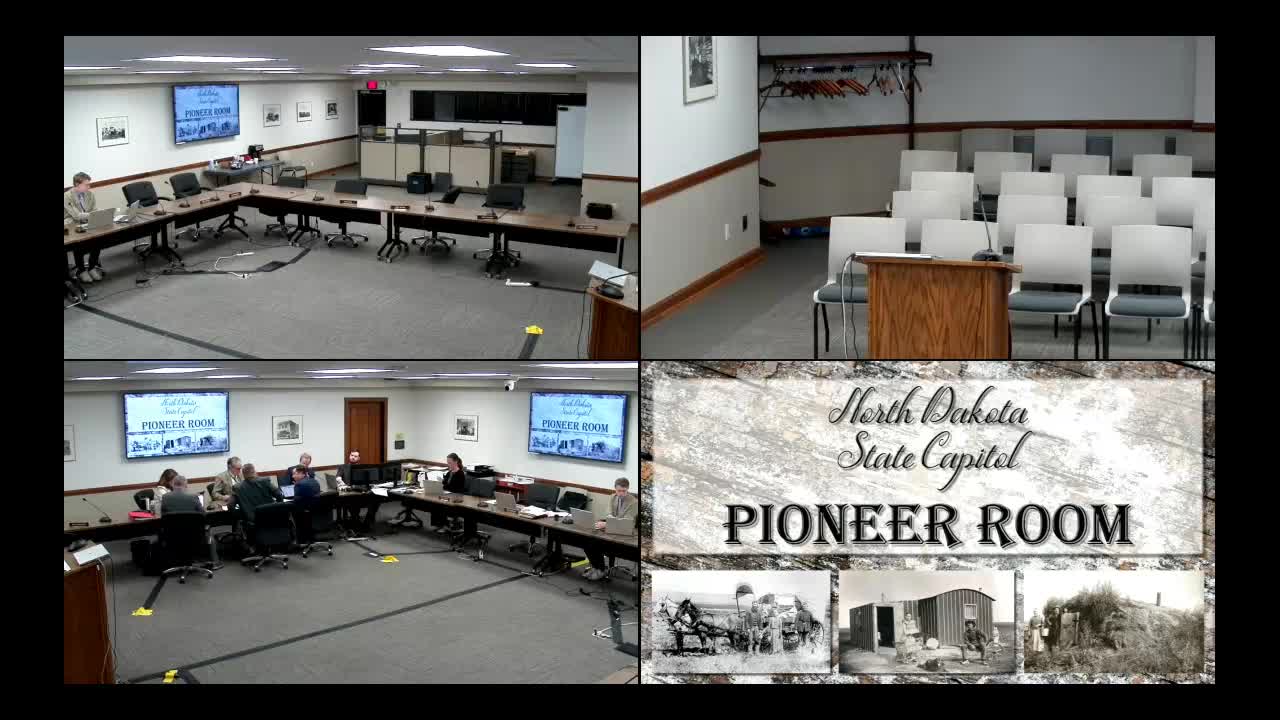Conference committee weighs expanding Capitol Grounds Planning Commission oversight of state construction projects
Get AI-powered insights, summaries, and transcripts
Subscribe
Summary
A House conference committee discussed a bill that would expand the Capitol Grounds Planning Commission’s role in reviewing state-owned and leased construction and remodeling projects, debated dollar thresholds and exemptions for higher education and the National Guard, and agreed to consult OMB staff before drafting amendments.
A conference committee of the House of Representatives met Oct. 29 to discuss legislation that would broaden oversight of state construction and renovation projects by the Capitol Grounds Planning Commission and to consider raising the dollar thresholds that trigger review. The committee did not vote on a final amendment and directed staff to consult Office of Management and Budget facilities staff before drafting changes.
Committee members said the bill’s sponsors intend the commission to “study and review construction projects impacting facilities both owned and leased by the state” and to identify opportunities to consolidate space and find efficiencies across the state’s portfolio of leased and owned property. Members also noted the bill as written would add several legislators to the commission and would create new reporting and review requirements for projects above a dollar threshold.
The discussion centered on three issues: who should sit on a reviewing body, which projects should be exempt, and what dollar thresholds should trigger review. Several legislators argued that making the commission wholly legislative would remove outside technical expertise and add bureaucratic steps; others said that because the Legislature controls appropriations it should have oversight of large-dollar projects. The committee reviewed provisions that would apply to new construction, renovations and leasehold improvements and discussed different dollar ceilings for each category.
Members repeatedly referenced a $2,000,000 threshold in the bill text and proposed raising some categories to $5,000,000. Lawmakers said leased facilities merit separate treatment, noting the state could be spending on leasehold improvements for a facility whose lease will soon expire. The National Guard and university projects were discussed as exemptions: university projects were already exempted in the bill text, and several members urged that National Guard projects also be exempted because federal coordination and appropriations complicate state oversight.
Committee members also noted that existing oversight occurs through appropriations and other legislative reporting; one member referenced prior testimony from John Boyle (now retired) about the importance of space-usage oversight and the possible addition of OMB staff positions. The committee agreed it should consult Solberg, the OMB facilities official identified in the discussion, to get technical input on appropriate thresholds and on which project types the Capitol Grounds Planning Commission could reasonably oversee without duplicating existing reviews.
No formal motion or roll-call vote was recorded on amendments during the session. The committee directed staff to pursue an LC amendment (legislative council drafting) to implement agreed language changes, to consult OMB facilities staff about cost ceilings, and to return with proposed amendments. Members set a plan to reconvene after those consultations.
Next steps: staff will consult OMB facilities staff about appropriate dollar thresholds and the practical scope of work for the Capitol Grounds Planning Commission, draft an LC amendment as recommended by members, and reschedule the conference committee to consider the amendments and any agreed exemptions.
